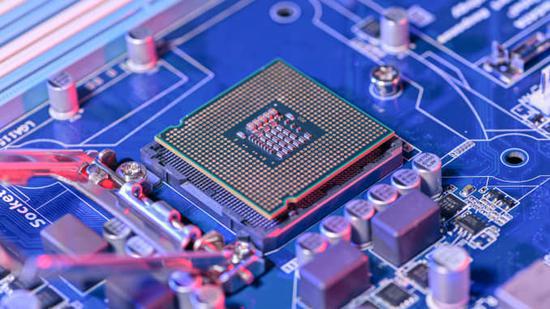On the July 28, the House of Representatives passed the CHIPS and Science Act that worth $280 billion, of which $52 billion is for the development of chip companies, aiming to promote the semiconductor industry and scientific research, create more high-tech jobs for the United States, and help the United States consolidate international semiconductor dominance, thus restricting the development of China’s semiconductor industry. Some scholars believe that some of the policies of the bill on China will require enterprises that build factories in the United States to not expand their investment in high-end chips in China within 10 years, that is, 14NM and smaller chips.
As we all know, chips play an important role and are the most important dual-use products in the global economy, but this bill will exclude China, which has a good development momentum in semiconductor, and force some big international chip companies such as Qualcomm, Intel, AMD, Texas Instruments, NVIDIA and Samsung to choose sides between China and the United States. In addition, during a recent visit to South Korea, US Treasury Secretary Yellen called for the strengthening of the South Korea-US battery alliance and lobbied South Korea to join the “chip 4” alliance, so as to attempt to completely marginalize the Chinese chip companies. Can this bill really solve the shortage of chips in the United States and plays a role in hindering the development of Chinese chip companies?

In fact, even if the CHIPS and Science Act is implemented, and the $52 billion of special funds for chips are effectively used, the containment of Chinese chip companies will not achieve the desired effect. First of all, the funds are not enough to meet all the needs of foreign-invested enterprises. Take Samsung as an example, the investment plans of the Samsung alone have reached $17 billion, so it is obviously unrealistic to achieve the purpose of containing China’s chip industry with $52 billion. Second, many industries in the United States rely on raw materials made in China. If the US imposes industrial transfer or decoupling, it will inevitably lead to the supply chain interruption in the US chip industry and aggravate the shortage of chips. Subsequently, the US government maliciously interferes with the division of world commercial production capacity, which plays an important role in the allocation of global resources, and it will directly lead to chaos in the global division of labor, aggravate the tight supply of chips, and increase the problems faced by the United States itself. Finally, a series of measures in the United States exist to suppress Chinese chips industry, but in fact, this bill forces the United States to compete with Chinese in chip industry, and instead stimulates China to actively and independently develop its own chip industry, and now China’s chip development has been seen significant progress. According to network data, at this stage, the world market share of the US chip industry is about 12%, while China has accounted for about 10%.
The bill, which planned to restrict the development of Chinese chip companies, has become the driving force for the reform and development of Chinese chip companies, and it has also destroyed the structure of the world’s chip resources and production capacity, resulting in an aggravation of its own chip shortage, which has put the US government in an unexpected and awkward situation. In fact, this kind of American embarrassment is not the first time. President Trump had a firm attitude on the chip issue before, so Chinese manufacturers hurriedly stocked up. As a result, there was a huge gap in the global chip supply, and the industries such as consumer electronics and automotive in the US and even in the world fluctuated violently. According to statistics, in this “chip crisis” that runs through 2021, the US has lost about $240 billion.
For the United States, which emphasizes market competition, it can do whatever it takes to contain China’s development, but for China, which emphasizes peaceful development, and we only need to respect the laws of the market and increase our own technological value, and then we will not afraid of any difficulty, pressure and challenge.

